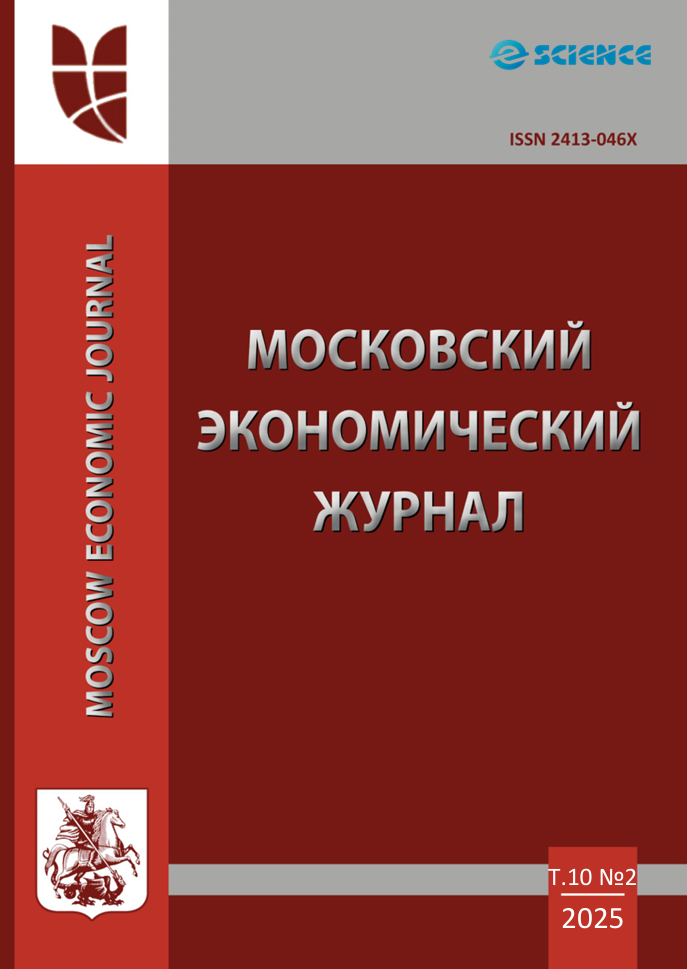Russian Federation
UDC 339.5
UDC 339.9
In this article the authors examined relevant experience of evaluating the effectiveness of economic integration using the example of the European Union as the most advanced integration association in the world nowadays. The article contains the analysis of the indices for integration measurement proposed by the supranational structures of the EU – the European Commission and the European Central Bank. The authors studied in detail two examples of approaches to assessing the effectiveness of integration within the EU by foreign researchers, which are based on an expanded theoretical and empirical base. The authors of the article highlight that besides the experience studied in the text, scientific publications also contain calculations of the old and new EU members integration level (Central and Eastern European countries), as well as integration and disintegration processes within the EU. Finally, the authors concluded that despite the methods adopted in the European Union for assessing the degree of its integration, this issue remains in the focus of attention of the European scientific community. Furthermore, the methodology for assessing the effectiveness of economic integration within the EU allows its leadership to timely adjust the development strategies of the integration association, which is strongly important in modern conditions. A question of integration is especially acute in the context of the systemic crisis in all EU countries, one of the main causes of which is the anti-Russian sanction policy.
economic integration, positive integration, negative integration, methods for assessing the effectiveness of integration, macroeconomic convergence, European Union (EU)
1. Mirakyan, D. G. (2023). Modeli ocenki ekonomicheskoy integracii v regional'nyh integracionnyh ob'edineniyah. Vestnik Moskovskogo universiteta. Seriya 6. Ekonomika, 58 (6), 58–77. https://doi.org/10.55959/MSU0130-0105-6-58-6-4.
2. Rastvorceva S.N., Lebedev A.O. Razvitie metodov ocenki faktorov i form mezhregional'noy ekonomicheskoy integracii: Monografiya. – M.: Izd-vo «Ekon-Inform», 2016. – 213 c. ISBN 978-5-9909188-5-6
3. Tkachenko, M. F. Ocenka opyta integracionnyh soglasheniy razlichnyh tipov v regulirovanii migracionnyh processov / M. F. Tkachenko // Nauka. Kul'tura. Obschestvo. – 2020. – № 1. – S. 81-87. – DOIhttps://doi.org/10.38085/2308829X-2020-1-81-87.
4. Tkachenko, M. F. Energeticheskiy faktor ekonomicheskogo blagopoluchiya Evropy / M. F. Tkachenko // Geoekonomika energetiki. – 2023. – T. 22, № 2. – S. 143-156. – DOIhttps://doi.org/10.48137/26870703_2023_22_2_143.
5. Heyfec B. A. Novaya model' mezhdunarodnoy ekonomicheskoy integracii. – M.: Institut ekonomiki RAN, 2023. – 48 c.
6. Eppler, Annegret and Anders, Lisa H. and Tuntschew, Thomas. Europe´s political, social, and economic (dis-) integration: Revisiting the Elephant in times of crises. Working Paper No. 143, October 2016. URL: https://irihs.ihs.ac.at/id/eprint/4093/ (accessed 10.01.2024)
7. Federico Steinberg. The Next Steps in EU Economic Integration. URL: https://www.csis.org/analysis/next-steps-eu-economic-integration (accessed 10.02.2024)
8. Jörg König, Renate Ohr. Homogeneous groups within a heterogeneous community - Evidence from an index measuring European economic integration // Discussion papers. Department of Economics, Georg-August-Universität Göttingen. Number 138. August 2, 2012.
9. Jörg König. Measuring European Economic Integration. Dissertation zur Erlangung des wirtschaftswissenschaftlichen Doktorgrades der Wirtschaftswissenschaftlichen Fakultät der Georg-August-Universität Göttingen. Göttingen, 2014. Vorgelegt von JÖRG KÖNIG aus Kilchberg, Schweiz.
10. Toplu Yılmaz, Ö. (2022). Is an economic ıntegration a stimulus for convergence? Analysis of European Union‟s last enlargement. Afyon Kocatepe University Journal of Social Sciences / Volume: 24, No: 2, June 2022, 631-645
11. Viktória Endrődi-Kovács, Oleg Tankovsky. A composite indicator to evaluate EU membership: The case of Central and Eastern European member states, 2004–2021. Regional Statistics, Vol. 13. No. 5. 2023: 899–924; DOI: 10.15196/ RS130505.











